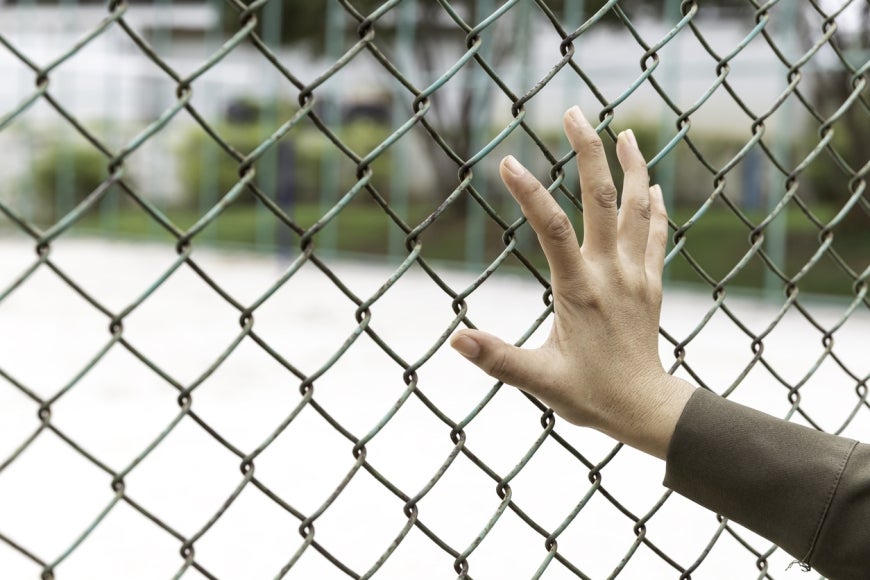'Not Just An Afterthought’ - Women in Immigration Detention Report

Overview
The Australian Human Rights Commission conducts ongoing monitoring of conditions in detention to ensure that Australia’s immigration detention system complies with our obligations under international human rights law.
In April and May 2024, the Commission conducted inspections, interviews, and consultations to monitor the human rights of women detained in onshore immigration detention centres in Australia. The inspections, led by Human Rights Commissioner Lorraine Finlay, were conducted at the Broadmeadows Residential Precinct and parts of the adjoining Melbourne Immigration Detention Centre, Villawood Immigration Detention Centre in Sydney, and Perth Immigration Detention Centre. The resulting report contains an overview of the key observations and concerns arising from the inspections and provides an assessment of the human rights impacts.
The report makes 31 recommendations to better protect the human rights of women in immigration detention, as well as improve the quality of work and support for staff. The Commonwealth Department of Home Affairs has provided an official response to the Commission’s recommendations. This response has been published alongside the report.
Background
The experience of women in immigration detention has seldom featured as a distinct area of focus in the Commission’s inspection reporting, with the notable exception of pregnant women and mothers. This is not an issue unique to Australia. The United Nations Subcommittee on Prevention of Torture and Other Cruel, Inhuman or Degrading Treatment or Punishment (UN SPT) has identified that across the globe gender-specific perspectives on torture and ill-treatment have not been adequately discussed, and the particular risks of ill-treatment and torture faced by women in detention has received limited attention.
As of June 2024, there were 50 women in immigration detention in Australia – which is less than 6% of the total cohort of people detained. Many of these women were interviewed during the inspections which informed this report. As part of these inspections, the Commission engaged Sisters Inside to provide a gendered and lived experience of incarceration perspective to the entire inspection process, and Professor Penny Abbott as an independent custodial health consultant.
In previous reports, the Commission has consistently expressed the view that closed immigration detention should only be used in circumstances where it is strictly necessary to manage unacceptable risks to the community. This report echoes those findings, noting that women in detention suffer a particular vulnerability compared to men.
Human rights impacts
The Commission’s report found that in an overwhelmingly male system, there is a concerning lack of adequate or equitable support for women in onshore immigration detention. This lack of support raises serious concerns over women’s safety and welfare.
These include:
- Serious concerns about harassment, privacy and safety due to women being housed near or with men.
- Feelings of fear, stress and trauma for women in detention being compounded by the continued use of ‘operational quarantine’, where people in detention are separated from others as part of COVID-19 measures – despite the fact there is no medical need to do so and other high risk environments, such as prisons, having ceased the practice.
- Lack of female staff, including in security and medical, which is impacting health support and feelings of safety.
- Limited accommodation available for women close to their families and inadequate facilities for visiting children.
- Inappropriate standards of heating and cooling in accommodation for women, treated in an unequal manner in comparison to standards in male compounds.
- Fewer opportunities for women to have meaningful self-development, with inadequate or inappropriate activities affecting mental health or exacerbating trauma.
Recommendations
The Commission’s inspection report provides 31 recommendations to the Commonwealth Department of Home Affairs. In its official response to the report, the Department has agreed or partially agreed with 11 of the recommendations, disagreed with four, noted 15, with one requiring Government consideration.
Many of the Commission’s recommendations are longstanding and have also been expressed by other oversight bodies, including the Commonwealth Ombudsman. The Commission hopes the Department will take action to implement them.
The Commission’s key recommendations in this report address the following concerns:
- Replacing the current system of mandatory immigration detention, with closed detention to be used only as a last resort (Recommendation 1)
- Meaningful activity and equal or separate access to facilities (Recommendations 2, 3, 23, 29, 30)
- An immediate end of operational quarantine and other COVID-19 restrictions (Recommendation 4)
- Gender-responsive training and staffing (Recommendations 5 to 8)
- Ending the interstate separation of women in detention from family and support, and expanding visiting options for women with children (Recommendations 9 to 11)
- Developing policies and protections for the placement and care of transgender women (Recommendations 12 to 14)
- An enhanced health response with women’s needs front-of-mind (Recommendations 15 to 18)
- Appropriate access to women’s products (Recommendation 19)
- Addressing the accommodation safety concerns of women in Broadmeadows Residential Precinct, the adjoining Melbourne Immigration Detention Centre and Villawood Immigration Detention Centre (Recommendations 20 to 22 and 24 to 28)
- Ensuring Perth Immigration Detention Centre is only used for the shortest periods of detention possible (Recommendation 31)
